Robotics in Knee Surgery: A Revolution in Joint Replacement
Knee transplant is among the very few first medical procedures that transformed the face of orthopedics in the history of medicine. Advanced technology brings precision, personalization, and increased patient outcomes for those requiring knee replacements. With an ever-increasing requirement for minimally invasive and highly accurate surgery, knee replacement takes center stage as a preferred procedure among patients and surgeons alike. Hence, let us delve into aspects surrounding knee replacement, especially with regard to its benefits, procedure, and expertise required in producing successful outcomes.
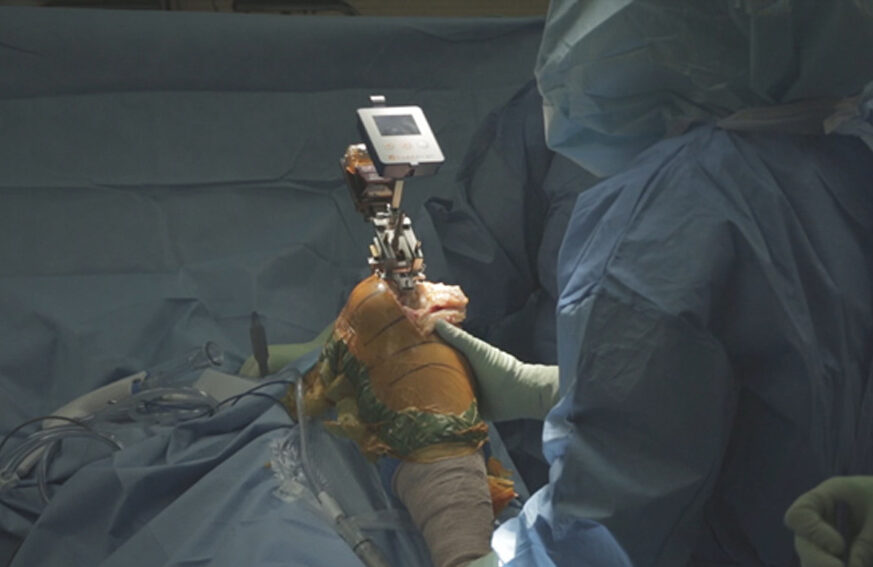
How Does Robotic Joint Replacement Work?
Knee surgeries are powered by advanced class robotic systems, which can help facilitate surgeons in conducting procedures that are highly accurate and tailor-made. In such technology, principles of computer-assisted planning are coupled with active robotic arms for accurate alignment and positioning of the knee implant. Robotics in joint replacement minimizes the room for errors at the hands of a surgeon, hence optimizing alignment and function and probably increasing the implant’s life.
Benefits Of Robotic Knee Replacement?
Among the most unmistakable advantages of knee replacement lies in the fact that it is done with undaunted precision. Such a process can be planned and executed by a robotic system, ensuring accurate positioning of the implant. This kind of preciseness leads to better alignment of joints and considerably brings down the risk factor of post-operative complications, hence enhancing the overall functioning of the knee.
Robotic surgery for knee replacement is tailored to each patient's anatomy. Preoperative imaging and planning software devise a 3-D model of a patient's knee, after which a surgeon develops a personalized plan for surgery. This thus ensures a perfect fit of the implant, allowing great comfort and mobility.
In this type of orthopedic replacement, the size of the incisions is comparatively smaller than that of traditional surgery. This minimally invasive procedure ensures less tissue damage and bleeding and thus faster recovery. Patients experience less pain, and they are able to walk faster and resume normal functionality sooner.
Studies have shown that knee replacement with robotic-assisted surgery provides better alignment and positioning of the implant. These are the two most critical factors for the long-term success of the surgery. Robotic surgery for knee replacement has been linked to higher satisfaction rates among patients, with better functional joints and lesser cases of revision.
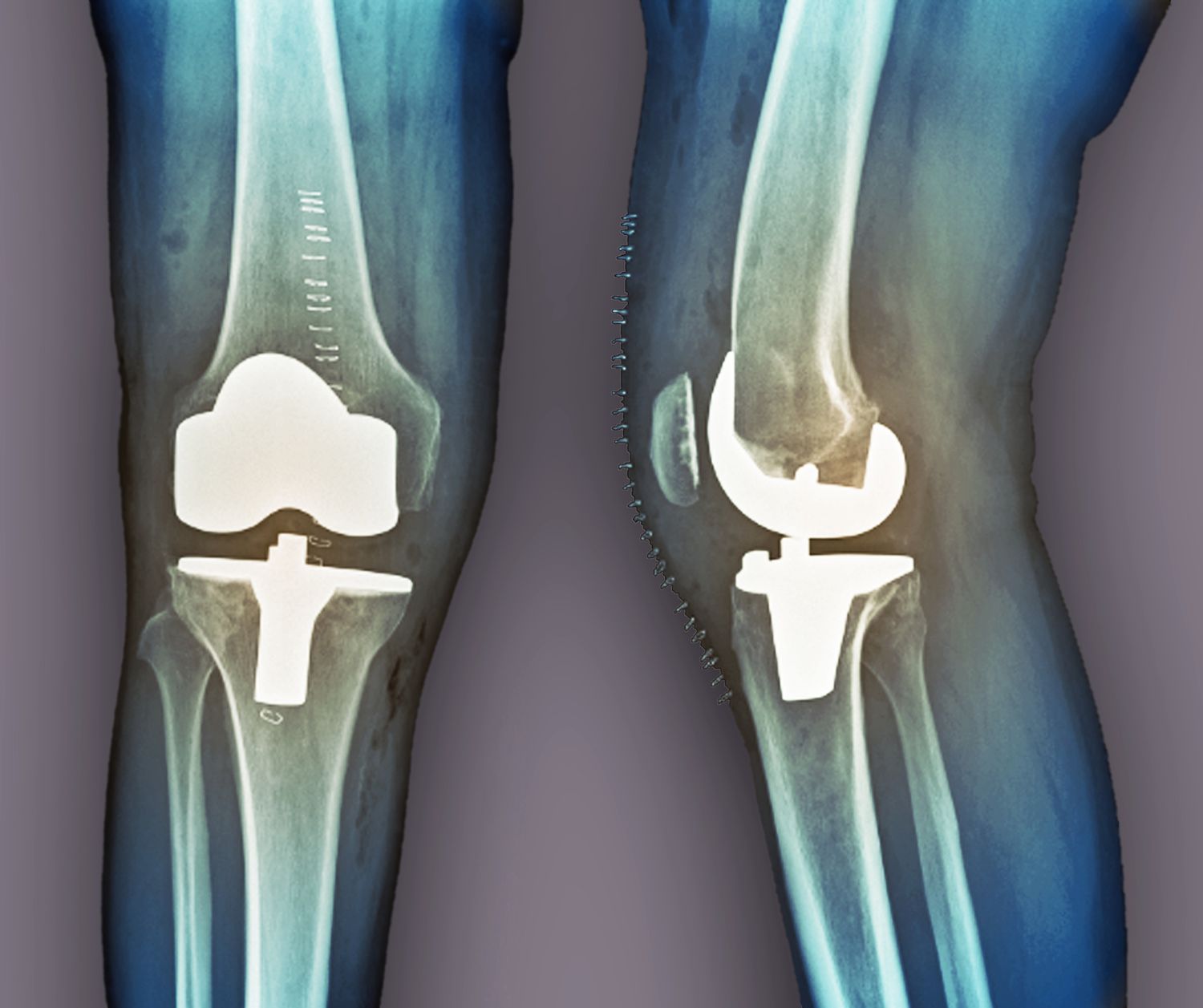
The Procedure of Robotic Knee Replacement
The entire process involves a number of steps:
- Preoperative planning: Before knee replacement robotic surgery, detailed imaging of the knee is obtained with advanced scanning techniques such as CT or MRI. These images will create a 3D model of the knee that helps the surgeon in planning the procedure.
- Surgical Execution: During the surgery, the robotic system helps the surgeon by providing real-time feedback and guidance. The surgeon controls a robotic arm, and using accuracy, the robot removes the damaged bone and cartilage and places the implant. The movements are within the planned parameters due to the robot, reducing the risk of human error.
- Inclusion of Postoperative Care: After the surgery, a rehabilitation program is taken up by the patient to again regain strength and mobility in the knee. Being minimally invasive, normally the recovery process would be faster with less pain than the traditional knee replacement robotic surgery.
Expertise in Robotic Joint Replacement Doctors
Knee transplanting is a very technical kind of surgery that requires a good deal of expertise and special training on the surgeon’s part. Surgeons who perform such surgeries will have spent years getting their education and receiving hands-on training in the mastery of robotic systems. Doctors are trained with traditional techniques and robotic-assisted techniques so as to choose the best option for every patient.
Success in surgery depends on choosing the correct and experienced robotic orthopedic surgeon. Patients need to search for knee replacement doctors who have a proven track record and are affiliated with reputed medical institutions. Detailed consultation with the surgeon can help the patients gain a great deal of understanding regarding the procedure, expected outcomes, and the process of recovery.
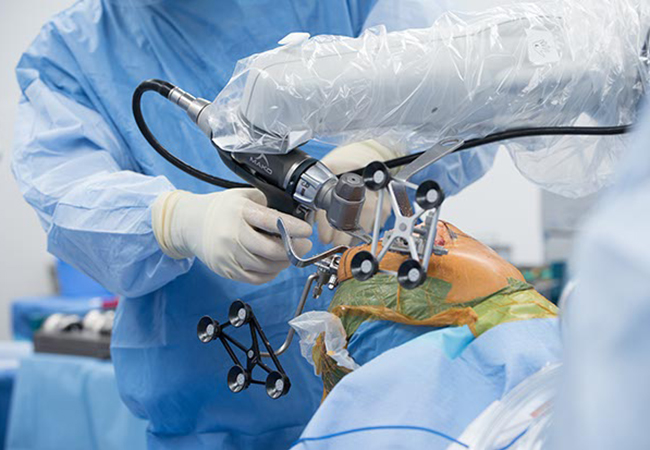
Advancement in Technology with Robotic Surgery for Knee Replacement
Orthopedics itself has been evolving, and this clearly shows in the absolute research and advancement of surgical techniques done without any breaks through the years, abetted by changing technology. Some of the most recent developments include:
Intra-operative CTs and MRIs give real-time information during the course of the surgery, thus enabling further precision and accuracy in implant placement.
The integration of Artificial Intelligence into the working of robotic systems improves the decision-making process during surgery. AI algorithms are capable of analyzing huge amounts of data and give out insights that aid a surgeon in making informed choices, thereby improving the outcomes.
The innovations in the design of implants are helping researchers develop intelligent implants that can track joint health and transmit data to better post-operative care and rehabilitation.
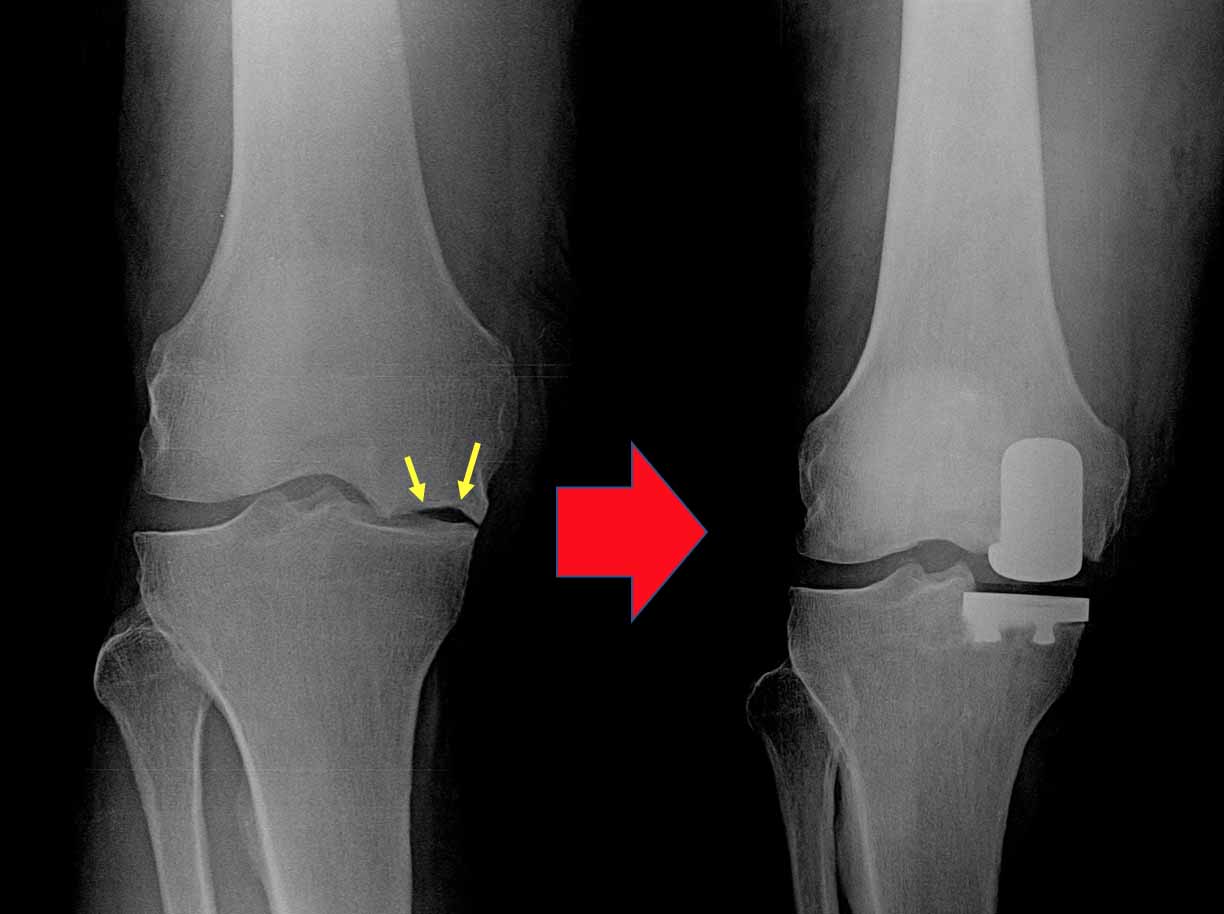
Things to Consider for the Patients
Not all patients are candidates for a robotic knee replacement. Nevertheless, several factors are considered to determine a patient’s eligibility for this procedure. Such factors include the extent of damage in the joints, overall health, among others. Patients with high degrees of degeneration or those suffering from gross deformity of the joints could stand to benefit from knee replacement the most.
- General Health: The general health of a patient ought to be good to be prepared to tolerate the surgery together with the subsequent rehabilitation.
- Previous Surgeries: Any previous surgeries to the knees can alter the decision for this surgery. The surgeon will examine the medial history of the patient to determine the best course of action.
- Lifestyle and Activity Level: Active individuals who are desirous of resuming routine activities with improved knee functioning can find this surgery more suitable.
Preconditions for Robotic Knee Replacement
The patient should follow the pre-operative guidelines provided by his/her surgeon. This may involve
- Medical Evaluation: A comprehensive medical evaluation will establish if the individual is in good health or he/she identifies risk factors.
- Preoperative Testing: Details of surgery may be planned with imaging studies and other diagnostic studies.
- Lifestyle Adjustments: You can make some adjustments to your lifestyle, such as quitting smoking or losing weight, in your life pertaining to better surgery and recovery.
- Education and Support: The patient should be informed about the nature of the procedure to be performed, its expected outcome, and the type of rehabilitation involved. The necessary support during the convalescing period could be provided by the family and friends.
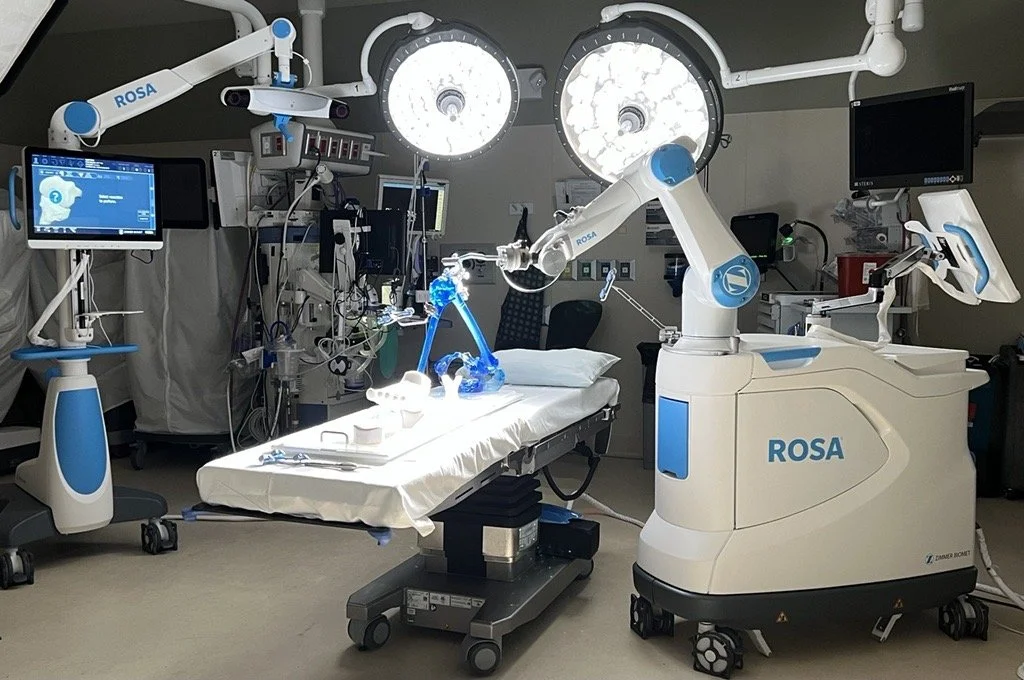
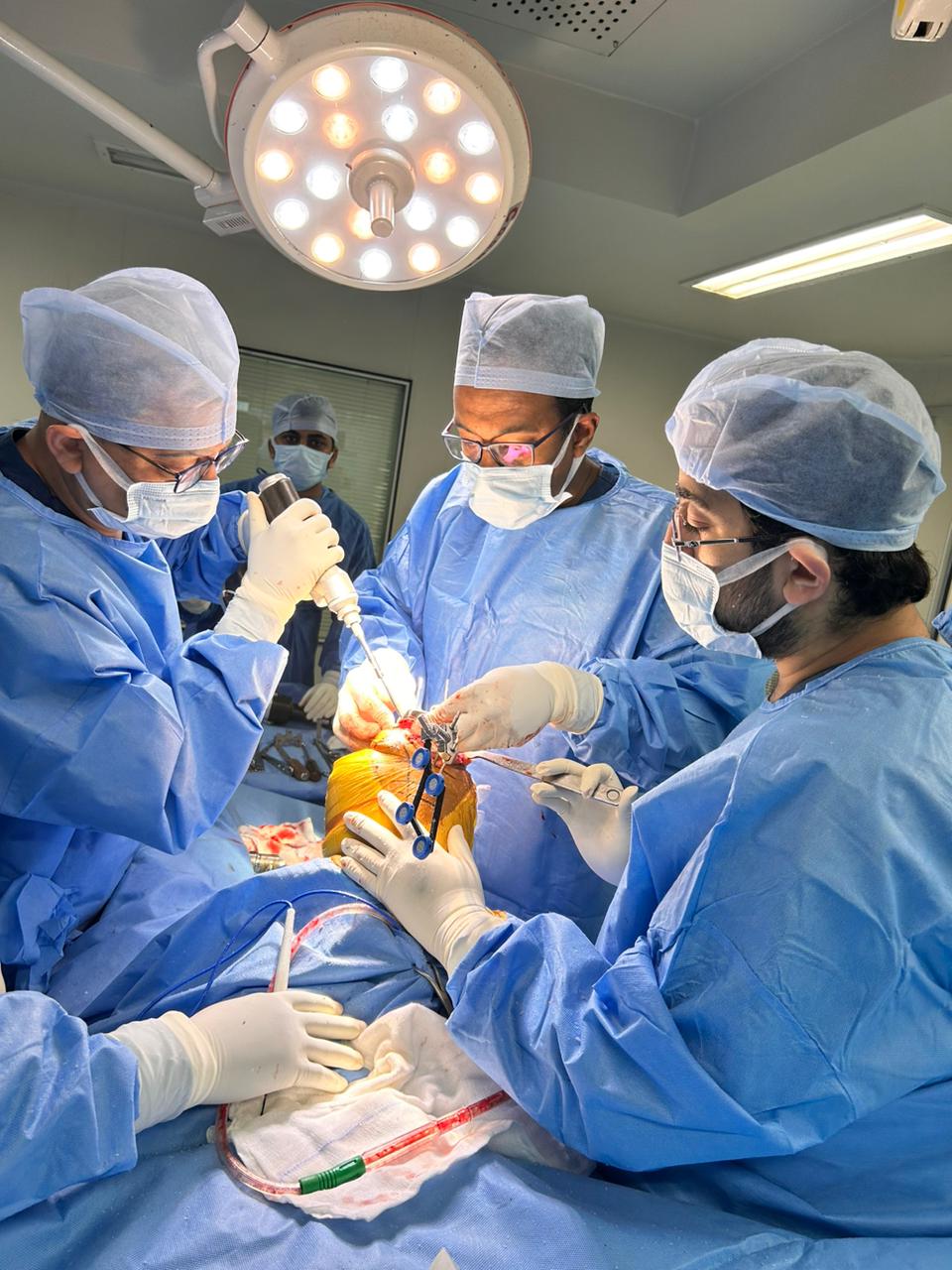
Aftercare and Rehabilitation
Integrated rehabilitation to regain the strength, flexibility, and function of the knee is an intrinsic part of the surgical procedure. The salient features of postoperative care are as follows-
- Physical Therapy: Following physical therapy exercises will improve mobility and further strengthen the muscles in the knee area.
- Pain Management: Medications and other forms of therapeutic intervention to ensure a pain-free recovery.
- Monitoring and Follow-up: The progress of the recovery is to be regularly followed up by the surgeon to keep a check on the process and to iron out any pending concerns.
- Lifestyle Alterations: Maintaining a healthy lifestyle will preserve the returns of surgery and prevent further issues related to joints in the future.
This, therefore, will be a big step ahead in orthopedic surgery: giving patients suffering from knee problems solutions that are accurate, customized, and least invasive. Among the advantages are better results and faster recovery, factors which easily make it increasingly appealing and within the reach of anyone who seeks relief from painful and malfunctioning joints. Anyone can see optimum results and hence be able to live a better life if they get treatment from an experienced Robotic Joint Replacement Doctor, with a proper pre-operative and post-operative plan.
Robotic surgery in knee replacement holds very good promise for the future with the advancement in technology. Continued advancement within the sector keeps enhancing the precision, safety, and effectiveness of these procedures for people in need with knee pain who are in search of reliable and high-end solutions for their problem. It is a new approach to the restoration of health and mobility of joints.
Book Appointment as per OPD schedule
Dr.Simon Thomas Robotic Joint Replacement Centre KP-4, Pitampura, Gopal Mandir Road, New Delhi (Near City Park Hotel)
Tuesday: 05:00 PM – 08:30 PM
Wednesday: 03:00 PM – 05:00 PM
Thursday: 05:00 PM – 08:30 PM
Friday: 05:00 PM – 08:30 PM
Max Hospital, Shalimar Bagh, New Delhi
Monday: 3:00 PM to 6:00 PM
Tuesday: 12:00 PM to 3:00 PM
Thursday: 12:00 PM to 3:00 PM
Friday: 12:00 PM to 2:00 PM
Saturday: 2:00 PM to 5:00 PM









